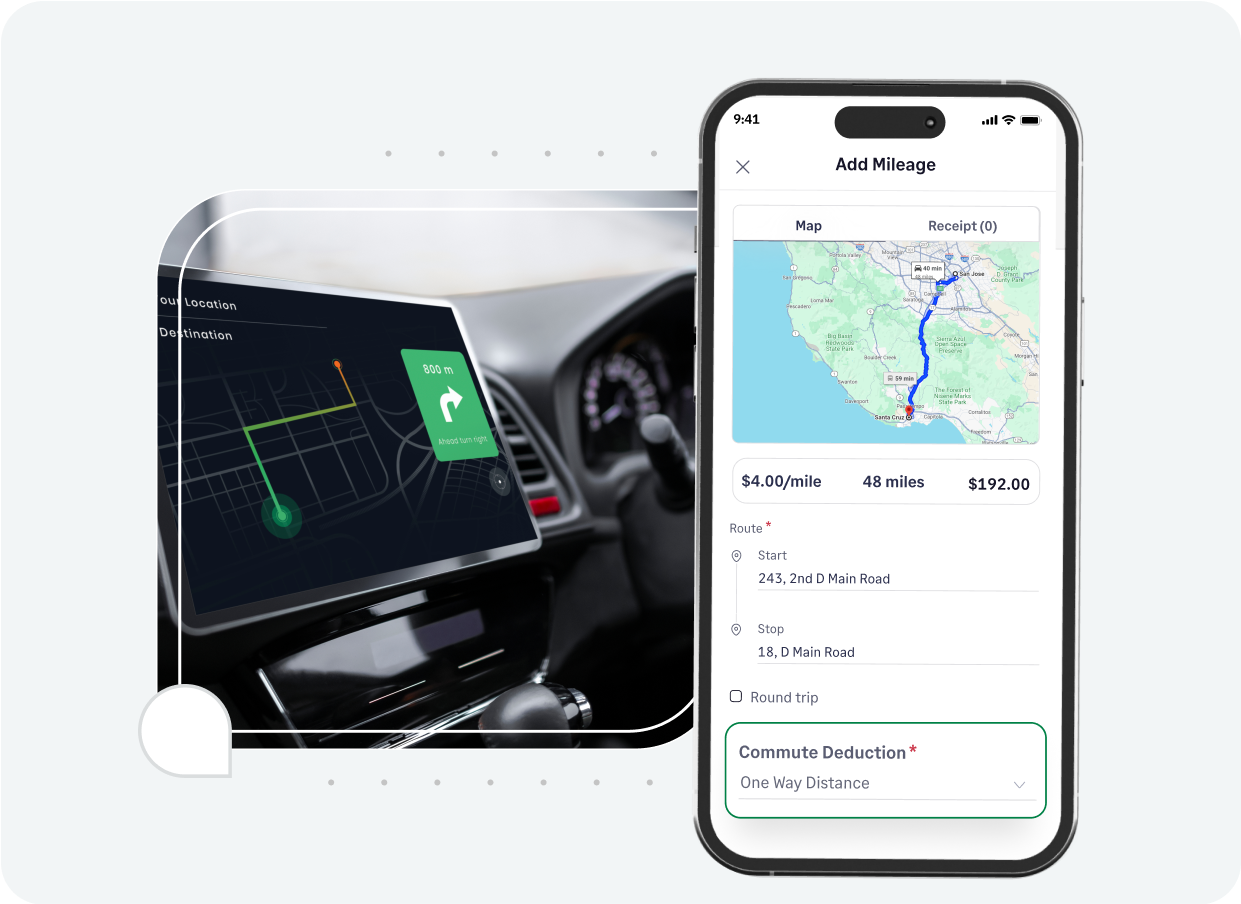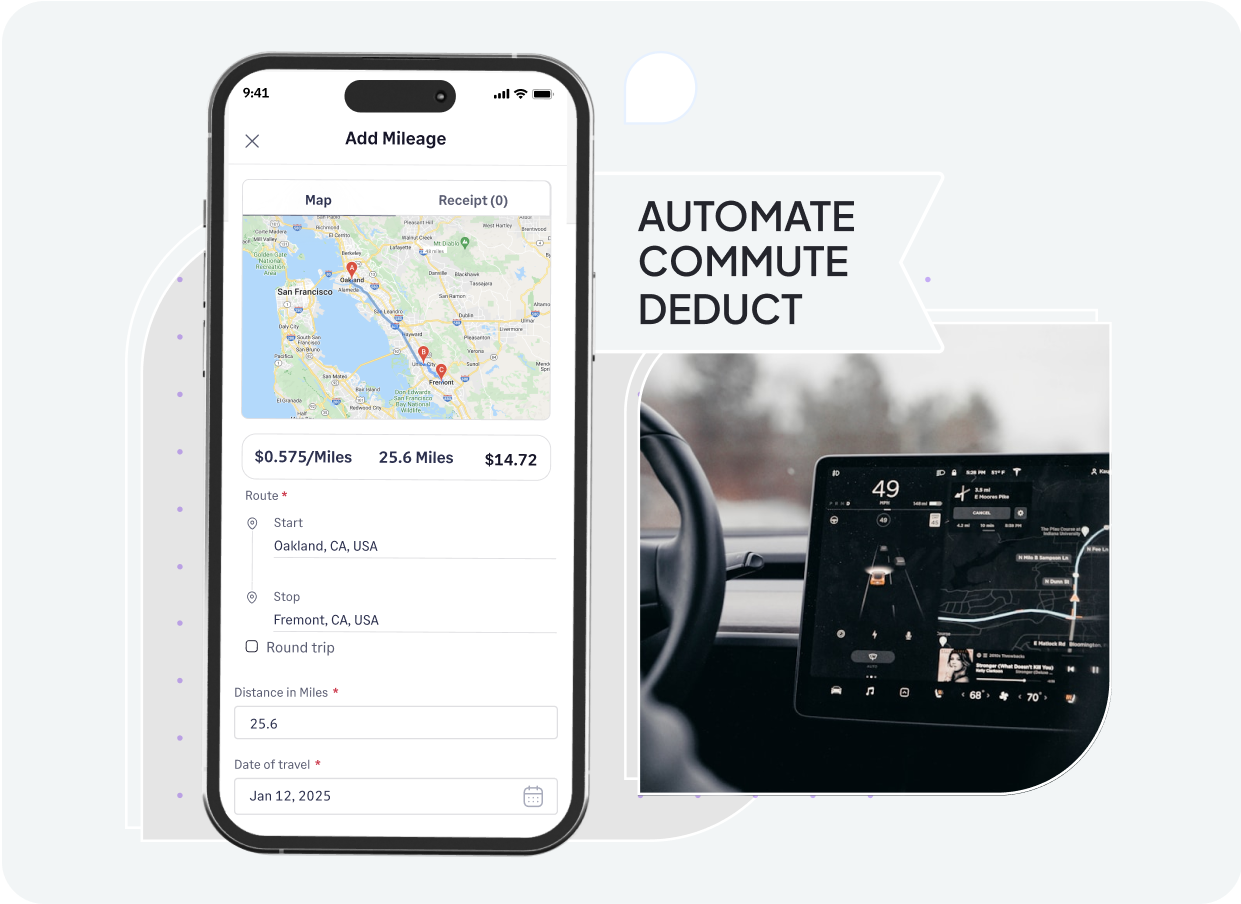For businesses operating across Idaho, from its agricultural heartlands to growing urban centers, managing employee travel often involves personal vehicle use.
Understanding the established mileage reimbursement rates is therefore a key component of fair compensation and sound financial practice in Idaho.
The national standard frequently consulted for these calculations is the rate published by the Internal Revenue Service (IRS). For the year 2025, the IRS has announced the standard mileage rate for the business use of a personal vehicle at 70 cents per mile. This is an increase from the 67 cents per mile rate that was effective for 2024.
In Idaho, private sector employers are not specifically mandated by a state statute to use this IRS rate for all general business-related travel. However, many businesses choose to align with this federal benchmark for its practical advantages:
- It offers a clear, consistent, and widely understood basis for reimbursement.
- When payments are made through an accountable plan at or below this IRS rate, they are generally not considered taxable income to the employee and are deductible as a business expense for the employer.
As of January 1, 2025, the key IRS standard mileage rates are:
- 70 cents per mile for business use of a vehicle.
- 21 cents per mile for medical or moving purposes (note: the deduction for moving expenses is currently limited to active-duty members of the U.S. Armed Forces).
- 14 cents per mile driven in service of charitable organizations.
Other relevant rates in Idaho include:
- Idaho State Employee Rate: The State of Idaho Board of Examiners sets the mileage reimbursement rate for state employees using privately owned vehicles for official state business, and this rate is typically aligned with the current IRS standard mileage rate. Effective January 1, 2025, this rate is 70 cents per mile (it was 67 cents per mile from January 16, 2024).
- Workers' Compensation Medical Travel: Injured employees in Idaho are entitled to reimbursement for reasonable transportation expenses to obtain necessary medical services for work-related injuries, as per Idaho Statutes § 72-433. The mileage rate for this purpose is generally the same as that allowed for state employees, meaning it is 70 cents per mile for 2025.
For historical context, here are the IRS standard business mileage rates from recent years:
Idaho Mileage Reimbursement Calculator
Easily estimate your mileage reimbursement with our straightforward Idaho Mileage Reimbursement Calculator.
How to Use the Calculator:
- Select the correct tax year: Choose the year for your calculation (e.g., 2025, 2024), as IRS rates are subject to annual updates.
- Input your business miles: Enter the total miles driven for business purposes using your personal vehicle.
- Calculate your reimbursement: The calculator will apply the official IRS standard mileage rate for the chosen year to display your estimated reimbursement amount.
This tool provides a quick estimate based on federal standards, helpful for managing travel expenses in Idaho.
Calculate
Results
Some Important Idaho Mileage Reimbursement Laws
While Idaho does not have a specific law requiring all private employers to reimburse mileage for general business use at a set rate, several state laws and overarching federal regulations influence employer responsibilities:
1. Idaho Minimum Wage Law (Idaho Statutes § 44-1502)
Idaho's minimum wage is $7.25 per hour, mirroring the federal rate.
This is a fundamental consideration: employers must ensure that any unreimbursed work-related expenses, such as mileage driven for business, do not effectively cause an employee's earnings to fall below this minimum for the hours worked.
Tipped employees must receive a cash wage of at least $3.35 per hour, with tips ensuring they reach the full minimum wage.
2. Workers' Compensation (Idaho Statutes § 72-432, § 72-433)
State law mandates that employers provide necessary medical services for work-related injuries.
This includes reimbursing injured employees for reasonable travel expenses to obtain such medical care, with specific conditions for travel outside one's city/town or within it if public transport is unsuitable.
The mileage rate for this aligns with the state employee rate (70 cents per mile for 2025).
3. Absence of General Private Employer Reimbursement Mandate on Rate
Beyond ensuring minimum wage compliance and fulfilling workers' compensation obligations, Idaho law does not generally compel private employers to reimburse for mileage at a particular rate. Therefore, specific company policies often guide these practices.
4. State Employee Travel Regulations
Idaho has established policies for reimbursing its state employees for official travel in personal vehicles, directly linking the rate to the IRS standard. This sets a benchmark within the state for fair reimbursement practices in the public sector.
Idaho Mileage Reimbursement Law vs. Federal Law
In Idaho, the legal considerations surrounding mileage reimbursement are primarily driven by federal standards, particularly since the state's minimum wage aligns with the federal rate, and its public sector reimbursement practices also follow federal guidelines.
Fair Labor Standards Act (FLSA)
The FLSA is the cornerstone federal law governing wage and hour standards, including the federal minimum wage (currently $7.25 per hour).
A key principle is that an employee's wages must not effectively dip below this federal minimum due to unreimbursed business expenses that primarily benefit the employer, such as mileage.
If these costs were to depress an employee's net pay below this federal floor for the hours worked, the employer would need to provide sufficient reimbursement to cover the difference.
Idaho's State Laws
Idaho's own legal framework closely interacts with these federal provisions:
- The state's minimum wage, as stipulated in Idaho Statutes § 44-1502, is also $7.25 per hour. This direct alignment means that ensuring compliance with Idaho's minimum wage regarding unreimbursed expenses generally also satisfies the FLSA's requirements in this context.
- Idaho law explicitly ties its state employee mileage reimbursement and, consequently, its workers' compensation medical travel rates to the current IRS standard rate. This demonstrates a strong state-level adoption of the federal benchmark for official and mandated travel reimbursements.
IRS Regulations
The standard mileage rates published by the IRS (e.g., 70 cents per mile for business in 2025) are primarily established for federal income tax purposes. These are not laws that legally require employers to reimburse at that specific figure.
However, their practical impact is considerable. When an Idaho employer uses an accountable plan and reimburses at or below these IRS rates, the reimbursement is typically non-taxable income for the employee and a deductible expense for the business.
The state's decision to align its own official rates with the IRS further reinforces the utility and acceptance of this standard within Idaho.
In summary, for Idaho employers, the state and federal minimum wage laws provide an identical wage floor that must be protected from erosion by unreimbursed business expenses.
Furthermore, Idaho's practice of aligning its public sector and workers' compensation mileage rates directly with the IRS standard solidifies these federal figures as the predominant benchmark for reasonable and tax-efficient reimbursement practices across the state.
How Sage Expense Management (formerly Fyle) Can Automate Mileage Tracking
Take the hassle out of mileage reimbursement in Idaho with Sage Expense Management. Our platform provides businesses an efficient route to managing travel expenses, ensuring accuracy and freeing up valuable time.
- Precise GPS mileage recording: Automatically logs mileage using Google Maps, ensuring every business trip is accurately captured for your records.
- Flexible rate engine for Idaho: Supports IRS standards, Idaho's state-aligned rates, or your unique company figures, applied correctly and instantly to all claims.
- Easy management of commute travel: Helps clearly define home and work locations to accurately deduct non-reimbursable personal commute mileage for fair reimbursement.
- Automated claims for recurring routes: Enables employees with regular travel to set them up once, simplifying future mileage submissions and saving considerable effort.
- Built-in policy checks for compliance: Embeds your company's specific expense guidelines to proactively flag any claims that may deviate from established rules or limits before approval.
- Seamless sync with your accounting software: Connects directly with popular systems like QuickBooks, Xero, and NetSuite, ensuring smooth data transfer and reducing manual reconciliation tasks.
- Efficient ACH payments for faster reimbursement (US only): Offers quick and direct deposit for approved employee mileage claims, enhancing satisfaction and streamlining your payment cycle.
Sage Expense Management helps Idaho businesses simplify their mileage tracking, improve compliance, and provide a more efficient and transparent process for their teams.


































